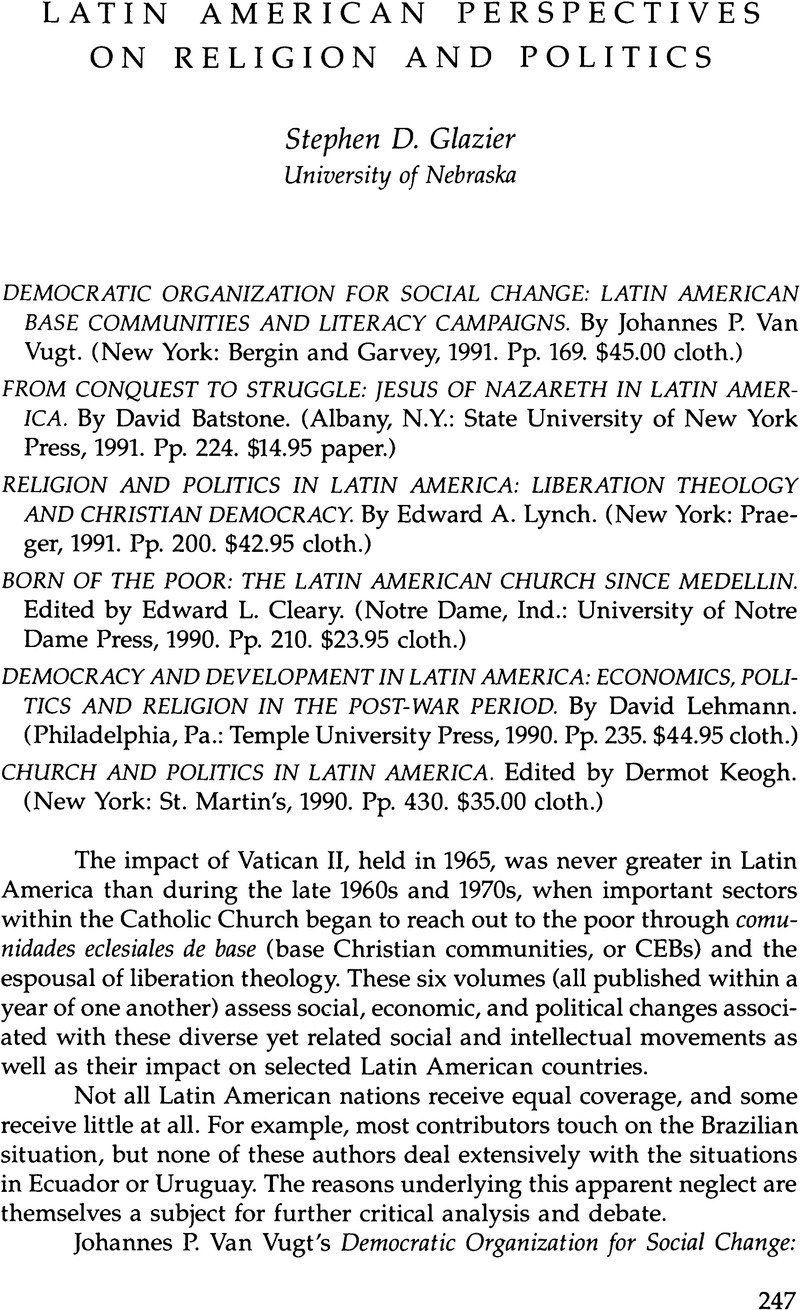Article contents
Latin American Perspectives on Religion and Politics
Review products
Published online by Cambridge University Press: 05 October 2022
Abstract

- Type
- Review Essays
- Information
- Copyright
- Copyright © 1995 by the University of Texas Press
References
1. For discussions of these and other thinkers, see Phillip Berryman, Liberation Theology (Philadelphia, Pa.: Temple University Press, 1987); and Conflict and Competition: The Latin American Church in a Changing Environment, edited by Edward L. Cleary and Hannah Stewart-Gambino (Boulder, Colo.: Lynne Rienner, 1992).
2. See Edward J. Williams, Latin American Christian Democratic Parties (Knoxville: University of Tennessee Press, 1967).
3. Thomas W. Walker, The Christian Democratic Movement in Nicaragua (Tucson: University of Arizona Press, 1970).
4. See especially Daniel Schipani, Religious Education Encounters Liberation Theology (Birmingham, Ala.: Religious Education Press, 1988); and Alfred A. Hennelly, Theology for a Liberating Church: The New Praxis of Freedom (Washington, D.C.: Georgetown University Press, 1989).
5. See Elizabeth Schussler-Fiorenza, In Memory of Her: A Feminist Theological Reconstruction of Christian Origins (New York: Crossroads, 1988). Schussler-Fiorenza expresses her vision of a “woman-church” as the baptismal call of all women to a discipleship of equals and a bonding in sisterhood for empowerment.
6. See Penny Lernoux, People of God: The Struggle for World Catholicism (New York: Viking, 1989).
7. See also John M. Kirk, Between God and the Party: Religion and Politics in Revolutionary Cuba (Tampa: University of South Florida Press, 1989).
8. The role of Protestantism must also be considered. See David Stoll, Is Latin America Turning Protestant? (Berkeley and Los Angeles: University of California Press, 1990); and Rethinking Protestantism in Latin America, edited by Virginia Garrard Burnett and David Stoll (Philadelphia, Pa.: Temple University Press, 1993).
- 1
- Cited by


